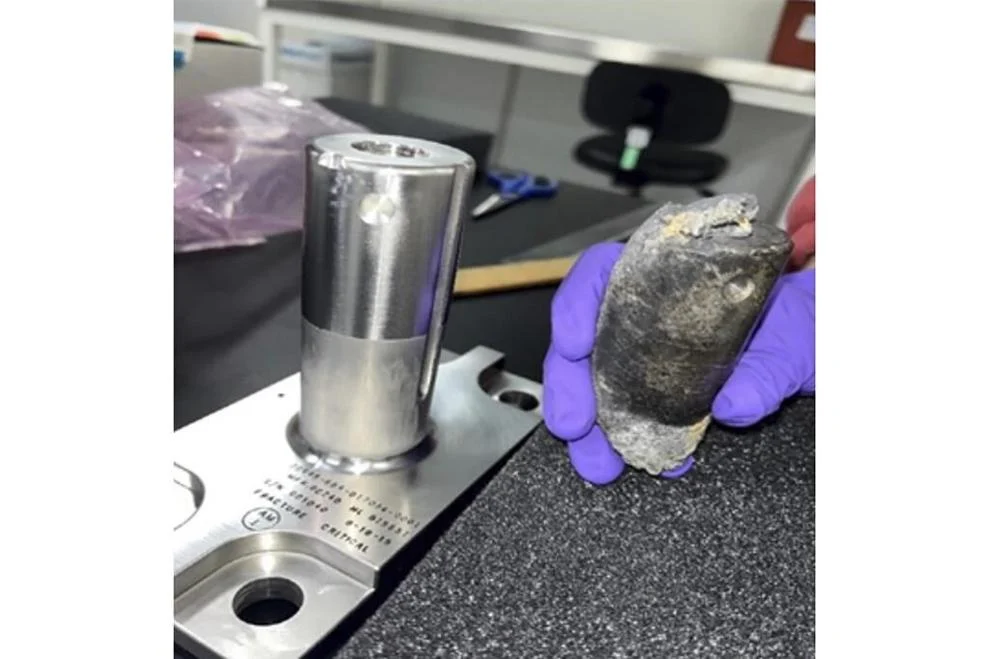
The cylindrical object that tore through a home in Naples, Fla., March 8, 2024, was subsequently taken to the Kennedy Space Center in Cape Canaveral, Fla., for analysis. (NASA via AP)
NASA verified on Monday that an unidentified object that crashed through the roof of a residence in Naples, Florida last month was a piece of space debris from equipment discarded at the International Space Station (ISS).
The cylindrical object, which penetrated the home on March 8, was transported to the Kennedy Space Center in Cape Canaveral for examination.
According to NASA, the object was identified as a metal support structure utilized to mount old batteries on a cargo pallet for disposal. This pallet was jettisoned from the ISS in 2021 with the expectation that its contents would completely burn up upon reentry into Earth's atmosphere. However, one component survived this process.
Weighing 1.6 pounds (0.7 kilograms) and measuring 4 inches (10 centimeters) tall and approximately 1 1/2 inches (4 centimeters) wide, the metal fragment inflicted damage upon the homeowner's property.
Alejandro Otero, the homeowner, recounted the incident, stating that he was away on vacation when his son informed him of the occurrence. Upon returning home early to assess the damage, Otero discovered that the object had punctured his ceiling and caused extensive destruction to the flooring.
Expressing disbelief at the unlikely event, Otero emphasized his gratitude that no one was injured. He expressed relief that the situation did not escalate further.
The incident underscores the potential dangers posed by space debris, highlighting the need for continued efforts to monitor and mitigate the risks associated with objects orbiting Earth.
NASA routinely tracks space debris to safeguard astronauts aboard the ISS and protect valuable assets in space. However, despite these measures, smaller fragments can evade detection and pose a threat to both spacecraft and terrestrial structures.
Efforts to address the issue of space debris include international collaboration, research into debris removal technologies, and the development of guidelines for responsible satellite deployment and end-of-life disposal.
Moreover, incidents such as the one in Naples serve as a reminder of the interconnectedness of space activities and terrestrial life. The consequences of actions taken in space, whether intentional or unintentional, can have tangible impacts on individuals and communities on Earth.
As humanity continues to explore and utilize space for scientific, commercial, and other purposes, it is imperative to prioritize the responsible management of space activities to ensure the safety and sustainability of space operations and the well-being of people on Earth.















